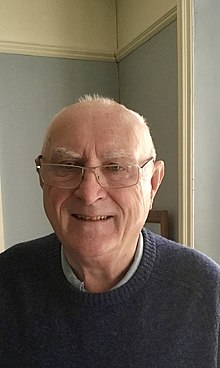Articles and chapters
•Johnson,K. (1981). ‘"Systematic" and "non-systematic" components in a communicative approach to language teaching.”. In Richertich,R.,&Widdowson,H. G. (eds). Description,Presentation et Enseignement des Language. Paris:Hatier,p. 60-72.
•Johnson,K (1988). ‘Mistake correction’. ELT Journal. 42,2,p. 89-96.
•Johnson,K. (1993). ‘Teaching declarative and procedural knowledge’,In Bygate,M.,Williams,E. &Tonkyn,A. (eds.). Grammar and the Language Teacher. London:Prentice Hall,p. 121-131.
•Johnson,K. (2000). ‘What task designers do’. Language Teaching Research. 4,3,p. 301-321.
•Johnson,K. (2002) ‘Language as skill’. ELT Journal. 56,2,p. 190-191.
•Johnson,K. (2002) ‘Is it a wood or are they trees?’In Miller,K. S. &Thompson,P. (eds.). Unity and diversity in language use. London:Continuum,pp. 138-151.
•Johnson,K.,Kim,M.,Ya-Fang,L.,Nava,A.,Perkins,D.,Smith,A. M.,Soler-Canela,O. &Lu,W. (2008) ‘A step forward:Investigating expertise in materials evaluation’. ELT Journal. 62,2,p. 157-163.
•Johnson,K. (2009) ‘Foreign language syllabus design’. In Knapp,K. &Seidlhofer,B. (eds.). Handbook of Foreign Language Communication and Learning. De Gruyter Mouton,p. 309-340.
•Johnson,K. (2010) ‘A Globe for the thirties’. Around the Globe. 44,p. 36-38.
•Johnson,K. (2010) ‘Eating the bitter bread’. Around the Globe. 45,p. 26-27.
•Johnson,K. (2017) ‘Shakespeare and language:An eventful afterlife’. In Levenson,J. &Ormsby,R. (eds.). The Shakespearean World. London:Routledge,p. 496-511.



